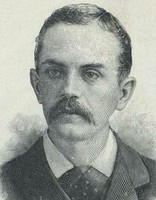A Quote by Iris Murdoch
When does one ever know a human being? Perhaps only after one has realized the impossibility of knowledge and renounced the desire for it and finally ceased to feel even the need of it. But then what one achieves is no longer knowledge, it is simply a kind of co-existence; and this too is one of the guises of love.
Related Quotes
On the basis of the eternal will of God we have to think of EVERY HUMAN BEING, even the oddest, most villainous or miserable, as one to whom Jesus Christ is Brother and God is Father; and we have to deal with him on this assumption. If the other person knows that already, then we have to strengthen him in the knowledge. If he does no know it yet or no longer knows it, our business is to transmit this knowledge to him.
The child is naturally meditative. He is a sort of samadhi; he's coming out of the womb of existence. His life river is yset absolutely fresh, just from the source. He knows the truth, but he does not know that he knows.... His knowledge is not yet aware. It is innocent. It is simply there, as a matter of fact. And he is not separate from his knowledge; he is his knowledge. He has not mind, he has simple being.
Finally you come to a point where you almost know it all. You are very wise. You are very pure... except for the fact that you may well have gotten caught in the last trap... the desire to know it all and still be you, "the knower." This is an impossibility. For all of the finite knowledge does not add up to the infinite. In order to take the final step, the knower must go. That is, you can only BE it all, but you can't know it all. The goal is non-dualistic - as long as there is a "knower" and "known" you are in dualism.
A scholar's business is to add to what is known. That is all. But it is capable of giving the very greatest satisfaction, because knowledge is good. It does not have to look good or even sound good or even do good. It is good just by being knowledge. And the only thing that makes it knowledge is that it is true. You can't have too much of it and there is no little too little to be worth having. There is truth and falsehood in a comma.
Knowledge is power." Rather, knowledge is happiness, because to have knowledge - broad, deep knowledge - is to know true ends from false, and lofty things from low. To know the thoughts and deeds that have marked man's progress is to feel the great heart-throbs of humanity through the centuries; and if one does not feel in these pulsations a heavenward striving, one must indeed be deaf to the harmonies of life.
I had a foretaste of another, larger kind of knowledge: one I believe human beings will be able to access in ever larger numbers in the future. But conveying that knowledge now is rather like a chimpanzee, becoming a human for a single day to experience all of the wonders of human knowledge, and then returning to one's chimp friends and trying to tell them what it was like knowing several different Romance languages, the calculus, and the immense scale of the universe.
And liberty cannot be preserved without a general knowledge among the people who have a right from the frame of their nature to knowledge, as their great Creator who does nothing in vain, has given them understandings and a desire to know. But besides this they have a right, an indisputable, unalienable, indefeasible divine right to the most dreaded and envied kind of knowledge, I mean of the characters and conduct of their rulers.
Too late for changes, too late perhaps for explanations and ideological webs, but the love goes on, the love goes on, blind to laws and warnings and even to wisdom and to fears. And whatever that love is, perhaps an illusion of a new love, I want it, I cant resist it, my whole being melts in one kiss, my knowledge melts, my fears melt, my blood dances, my legs open.
Each thing that exists remains forever, and that very existence of existence is proof of its eternity. But without that realization, which is the knowledge of perfect being, man would never know whether there was existence or non-existence. If eternal existence is altered, then it must become more beautiful; and if it disappears, it must return with more sublime image; and if it sleeps, it must dream of a better awakening, for it is ever greater upon its rebirth.
If one does not make human knowledge wholly dependent upon the original self-knowledge and consequent revelation of God to man, then man will have to seek knowledge within himself as the final reference point. Then he will have to seek an exhaustive understanding of reality. He will have to hold that if he cannot attain to such an exhaustive understanding of reality he has no true knowledge of anything at all. Either man must then know everything or he knows nothing. This is the dilemma that confronts every form of non-Christian epistemology







































